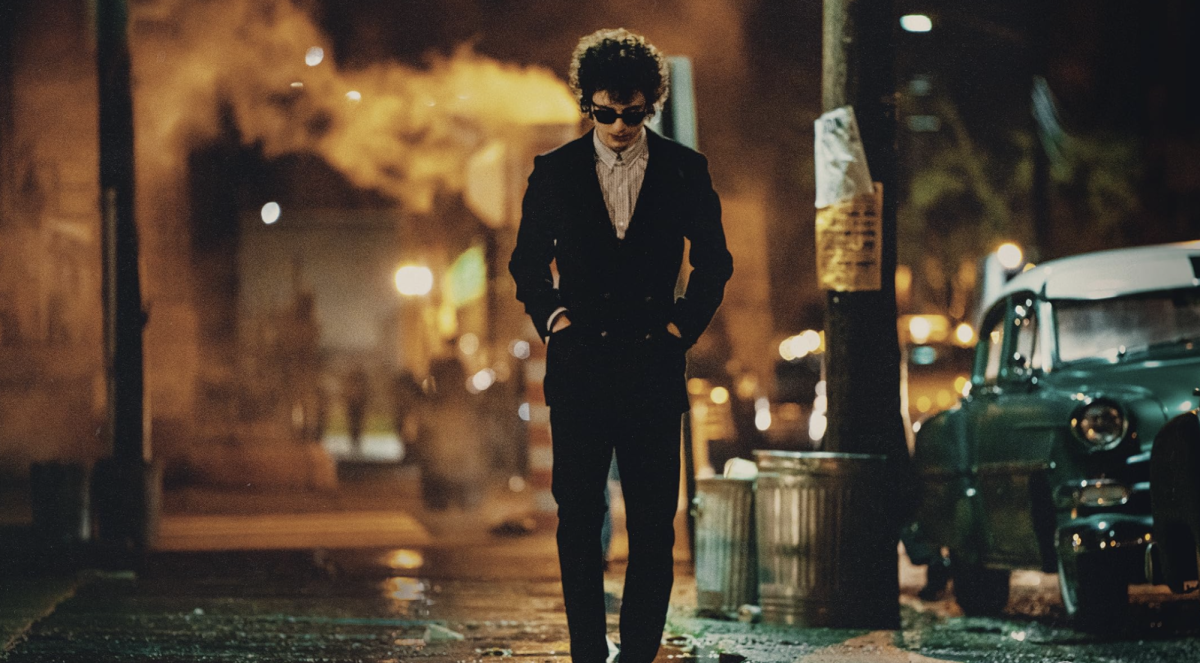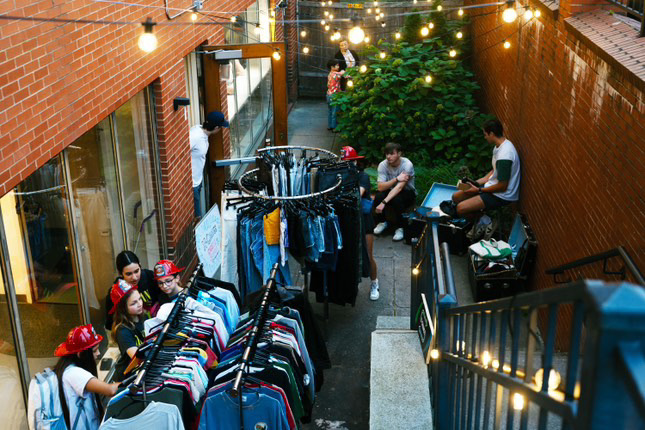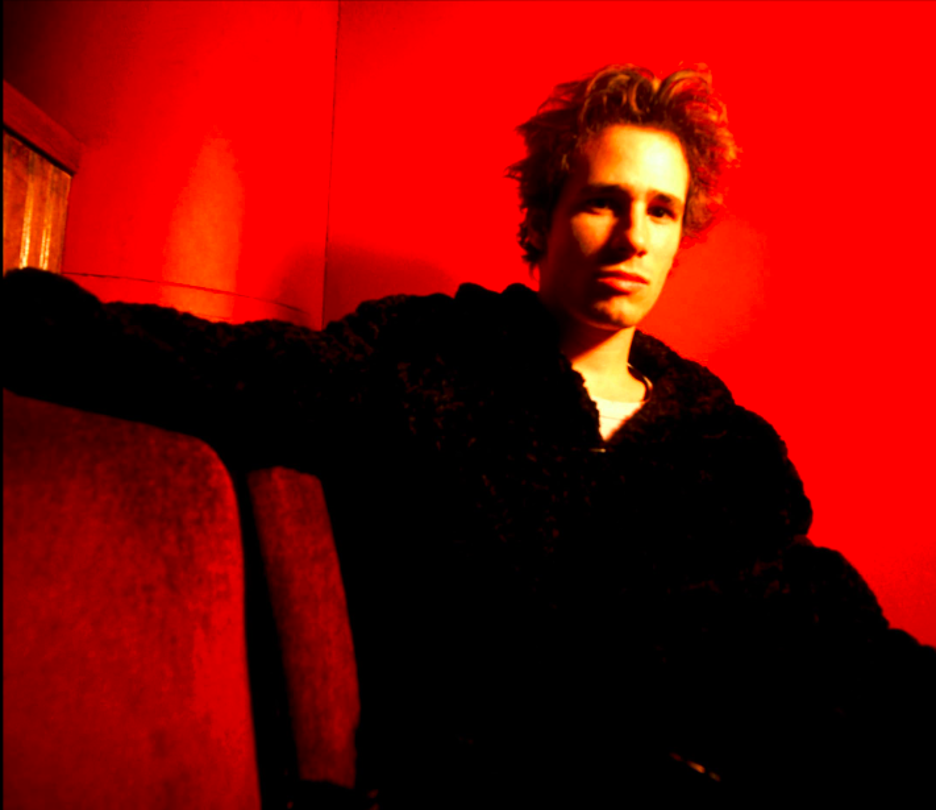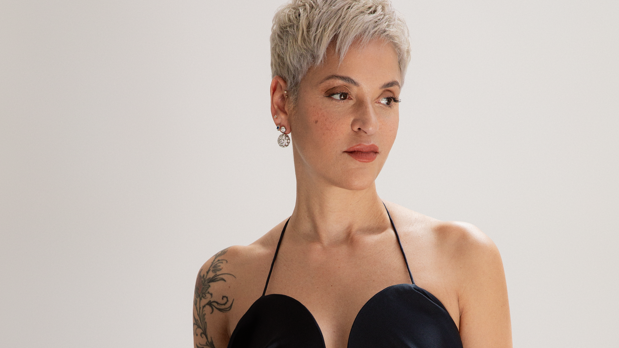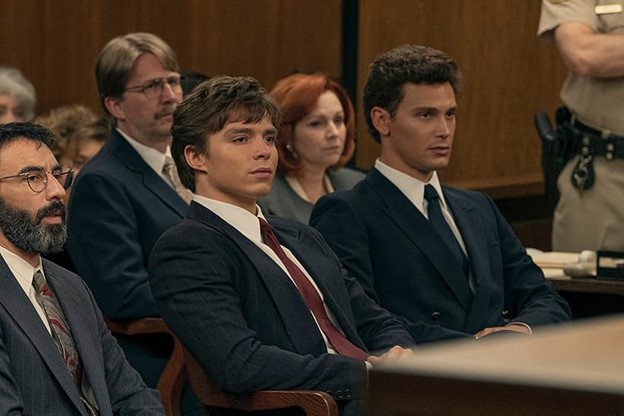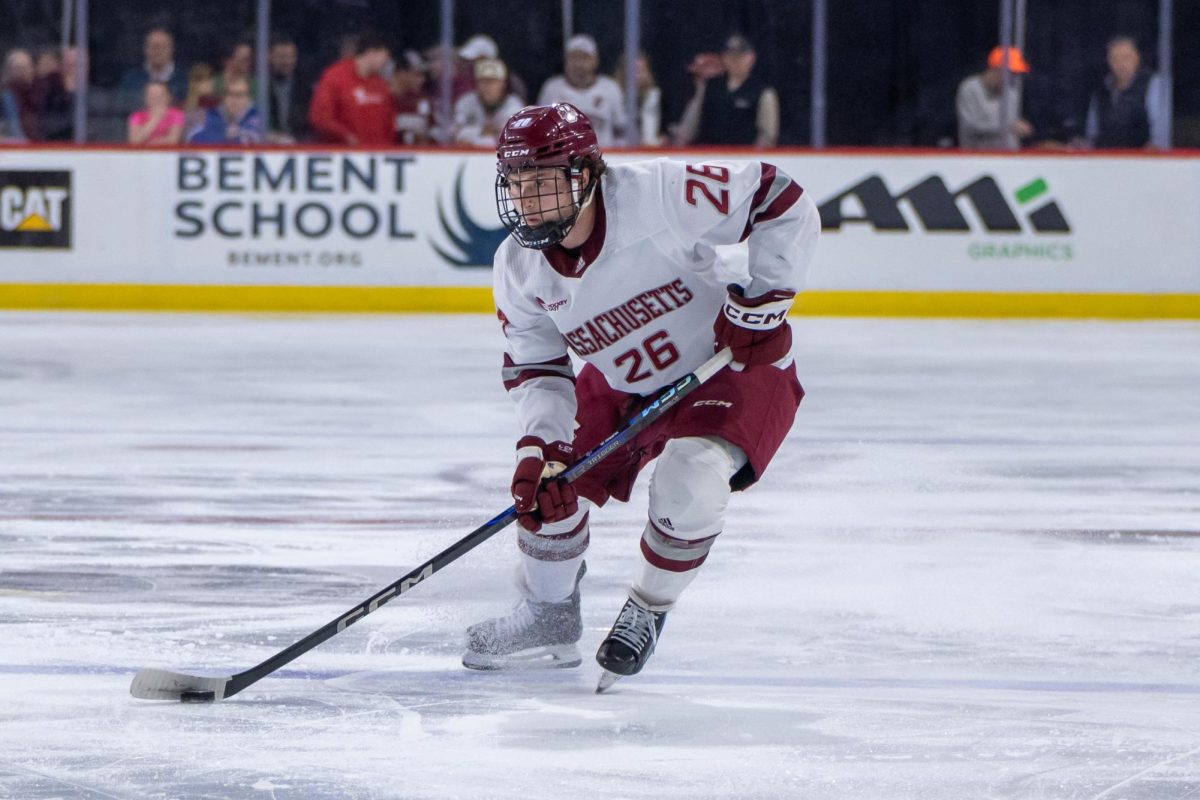On Friday Feb. 23, poets went head-to-head in the W.E.B. Du Bois Poetry Slam Invitational at the Carney Family Auditorium in Furcolo Hall. The event was the first part of a two-part Black Artistic Freedom Weekend hosted by the Black Healing, Joy and Justice Collective, the UMass Center of Racial Justice and Youth Engaged Research and the W.E.B. Du Bois Center at the University of Massachusetts. It was spearheaded by Imani Wallace, a third-year PhD student of social justice education and W.E.B Du Bois Center fellow. Jahman Hill, professor at the University of Alabama and prolific spoken word artist, was the featured artist and Master of Ceremonies.
The Slam commemorated Black poetry as well as Black History Month. Wallace described the power of spoken word poetry, and how it could be used to advocate for social justice and change. “Spoken word poetry is an art form in and of itself. It is under the house […] of the world of poetry, but it is a specific art form for the stage, or performance or entertainment, and also for deeper meaning — I talk about social justice poetry a lot in my work, in my research, and also just in the spaces that I engage. I will say that […] the purpose of [the event] is to uplift Blackness,” Wallace said.
The event also celebrated the birthday of W.E.B. Du Bois, the pioneering African American civil rights activist, sociologist and author. Although arguably best known for his compilation of essays “The Souls of Black Folk,” Du Bois also wrote poetry, a collection of which the W.E.B. Du Bois Center has compiled.
Wallace acknowledged the lasting impact of Du Bois’ activism on not only the Black community, but also the UMass Amherst community. A native of Great Barrington, Mass., Du Bois contributed his research papers to the University — hence, the campus library has been named after him.
“If [Du Bois] was here right now, I would want him to see his legacy […] being fulfilled through the work of scholars, […] poets, […] creatives, […] artists, and […] activists who are still continuing to speak out and using his foundational texts […] that we are pulling up in our research in order […] create arguments about freedom and liberation […] [and] the Color Line, which is what Du Bois [discusses] in his work,” Wallace said.
Also present were Dr. Whitney Battle-Baptiste and Adam Holmes, director and assistant director of the W.E.B. Du Bois center respectively. Holmes had similar aspirations for Du Bois’ legacy being upheld.
“I would want to reassure him that we […] look after his legacy in the shape of the Du Bois papers, which are held in the library’s special collection in the University Archives, and that we use this resource and his immense legacy to help our community interpret the contemporary issues, many of which are the same that he was campaigning for and against. We always use Du Bois as a voice not just of the past, but for the present. Du Bois is not a dead voice from history, he’s someone who intended for his words to be read long beyond his lifespan and to be there to inspire future movements for racial justice and social justice,” Holmes said.
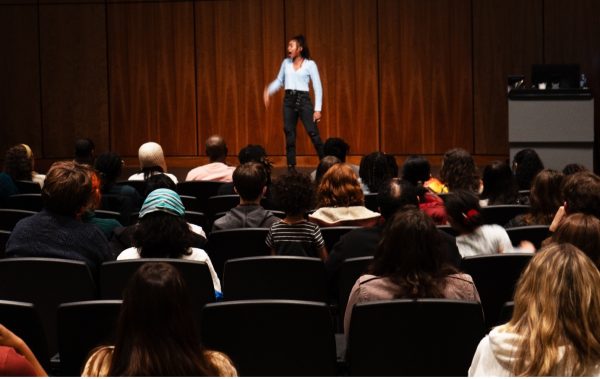
Indeed, Du Bois would have been proud to see how the event allowed for Black expression, especially through poetry. The night’s competitors were Phillip C. Alexander (“Phil C”), Goddess Tymani Rain, Rudy Cabrera (“Rudy Ru”), Tarishi Shuler (“Midnight”), Kara Ireland (“K. Elise”), Ide Thompson, Zach Steward, Sherrell Riley (“Riley”), Joel Blandon and Ihuoma Onyeukwu. Performing as sacrificial poets — additional performers who are evaluated by the judges but do not compete — were Wallace herself, under her poet name “Lyrical Faith,” and Adriana Lyra-Brazao. All the performers were members of the Black community and used their poems to speak about their personal experiences and challenges.
“In [my] piece, I’m describing the life on a day-to-day [basis] of somebody that lives as a minority within the United States. The message I hope to convey within that piece is that even though we’re living on a day-to-day basis, and we’re trying to strive for better, we can always strive for more,” said Alexander, a slam poet from Bridgeport, Conn., of one of his poems. The piece, titled “Immigrant Song,” was named after the Led Zeppelin single, and Alexander acknowledged that there was indeed a reference to the band in his poem.
Ireland, a first-year Afro-American PhD student at UMass, cleared two rounds of the competition. In her poems, she discussed two issues that concerned her personally — the use of the n-word as well as her sexuality.
“The first piece that I performed was called ‘The First Time’, and it’s about the first time that […] non-Black people say the n-word, because I personally don’t believe that that word should be used by people who are not Black, especially because it’s a very class-conscious thing. […] Sometimes [certain individuals] think that, because they grew up in poverty, they are adjacent to the Black struggle; therefore, they are allowed to use that word, when, in reality, the n-word has very convoluted, deep meanings, and the etymology of that word has so many implications — historically, socially, emotionally — to Black people. It’s not something that goes across racial lines,” Ireland said.
“My second poem was called ‘Colorblind’, and it was a love poem […] I’m a lesbian, and it was a piece about falling in love with a girl who decided that she didn’t want to be queer with me, that she wanted to cling to safety [and] heteronormativity and live that life, while also ignoring everything that had happened with me.”
Cabrera’s poem, “Strength and Sensitivity,” retold the story of overcoming challenges in his life and using his experience to develop as a person.
“[The poem] is about my battles with insecurities when I was younger and how [they] would push me to look for father figures in more negative imagery […] and how it almost led me to a certain path that could have been very destructive for my life. […] I was able to have a conscious moment of realizing the path that I was on, and I was able to fix that and get on the right path and embrace being a solid man,” Cabrera said.
The event saw animated performances and an equally animated audience. Scores that the spectators felt were insufficient were met with boos, and exceptionally high ones were excitedly cheered on. Ultimately, Alexander emerged victorious with a score of 90 points. Rain bagged a close second with 89.9 points; Cabrera followed with 89.8 points, and in fourth place was Shuler, with 89.6 points.
Hill recognized the positive impact that the night’s poetry could have on the public, as well as the performers themselves. He felt that those who create and perform poetry had the potential to ignite conversations about hard-hitting and difficult topics, including those that were broached by the poets.
“I want people to recognize their infinite possibility [through poetry]. I think poetry is a catalyst for community growth, or crucial conversations, just for bringing people together. So I always hope that my poetry functions as a conversation starter in that way, [by] just really getting people to see how amazing and incredible they can be if we’re honest with ourselves, if we’re able to work through different stuff we’ve [been] through — historical traumas, relational traumas, traumas that we’ve dealt with as a society, because a lot of times we […] try to sweep things under the rug,” Hill said.
Kalana Amarasekara can be reached at [email protected].









